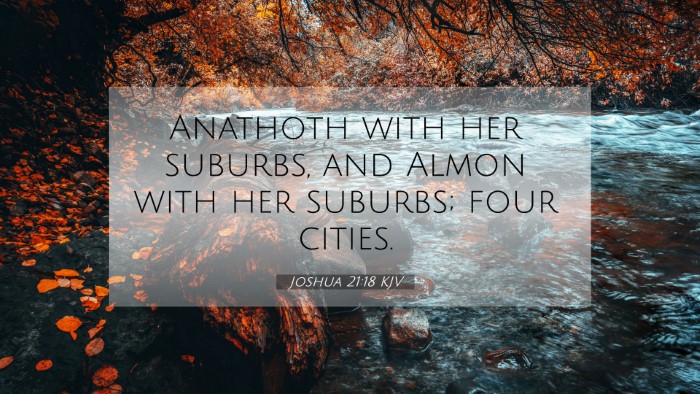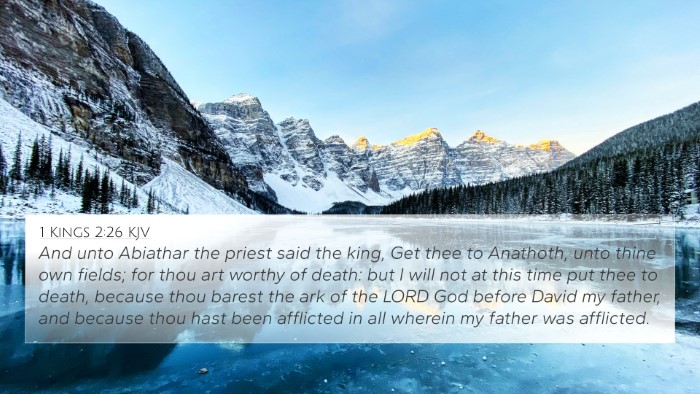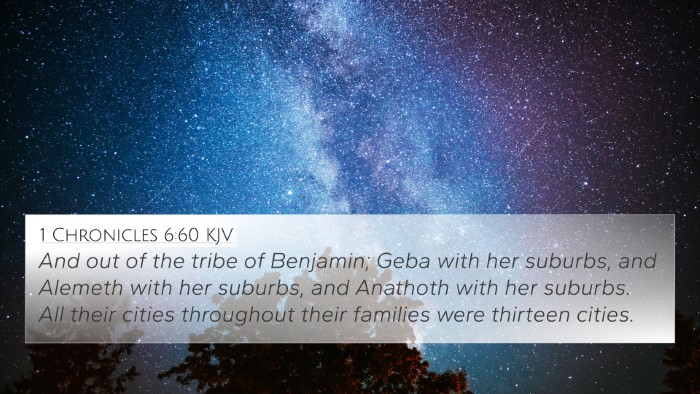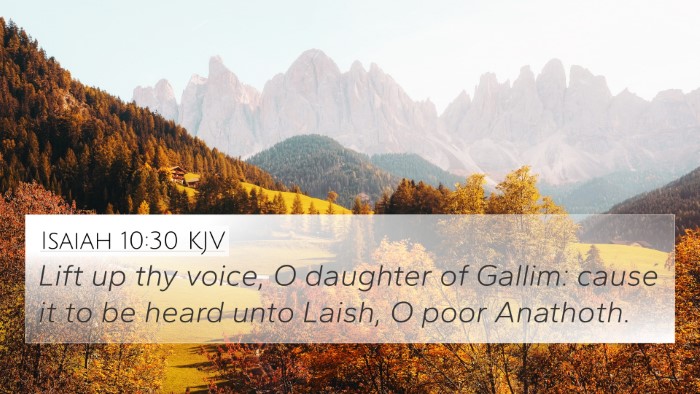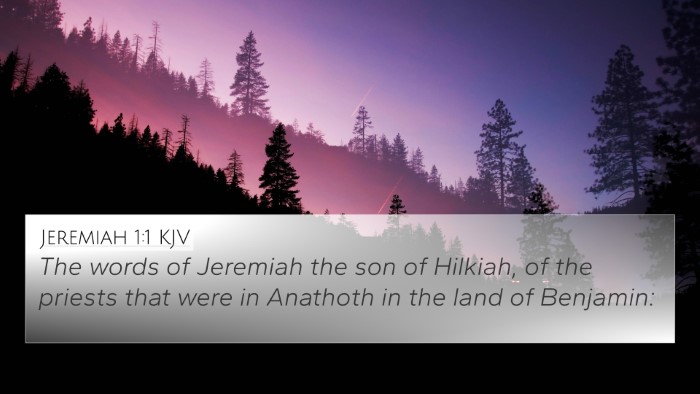Bible Verse Interpretation: Joshua 21:18
Verse Reference: Joshua 21:18 - "And out of the tribe of Judah, the city of the firstborn, which is Hebron, and its suburbs." This verse discusses the distribution of cities among the Levites and highlights the significance of the city of Hebron.
Understanding Joshua 21:18
The verse serves as part of a broader narrative where Joshua is establishing cities for the Levites, showcasing God's provision for His people. The allocation of cities was not only practical but also held deep spiritual significance.
Commentary Insights
Drawing from the insights of Matthew Henry, Adam Clarke, and Albert Barnes, we can explore the theological and practical implications of this verse.
Matthew Henry's Commentary
- Levitical Cities: Matthew Henry emphasizes the importance of the Levitical cities. The Levites, as the priestly tribe, were set apart for service and required cities for their dwelling, which demonstrates God's plan for their unique role.
- Hebron’s Significance: He points out that Hebron, known as the city of refuge and associated with the patriarch Abraham, symbolizes a connection to the heritage of faith, reflecting the continuity of God's promises.
Albert Barnes' Commentary
- Geographical Layout: Barnes provides a detailed geographical layout that explains the strategic importance of Hebron, citing its location as conducive for a central community of worship for the Levites.
- Covenant Reminder: He also notes that this selection serves as a reminder of God's covenant with Abraham, where Hebron played a vital role in the lineage leading to the establishment of the Israelite nation.
Adam Clarke's Commentary
- Firstborn Concept: Clarke elaborates on the term 'firstborn' to suggest the city's prominence and reverence, underscoring its selection among the Levites reflects deeper theological interpretations regarding inheritance and sanctification.
- Suburbs' Importance: Clarke also emphasizes the suburbs' role. These adjacent lands facilitated the support of the Levite community, linking it to the active ministry and daily responsibilities of the priests.
Thematic Connections and Cross-References
This verse has several connections to other parts of Scripture, demonstrating the interwoven nature of biblical themes. Here are 10 key cross-references related to Joshua 21:18:
- Numbers 35:6-7 - Discusses cities of refuge and their significance in the Israelite law.
- Deuteronomy 18:1-8 - Outlines the provision for the Levites and their inheritance among the people.
- Hebrews 7:14 - Relates to the priesthood of Christ, linking the Levitical lineage to Jesus' priesthood.
- Genesis 13:18 - Highlights the importance of Hebron in Abraham's journey and God's promises to him.
- 1 Chronicles 6:55 - Affirms the allocation of cities to the Levites in line with God's directive.
- Luke 1:5 - Connects to the priestly roles during the time of Christ, echoing the Levitical heritage.
- Joshua 14:12 - Mentions Hebron in the context of the inheritance given to Caleb, juxtaposing individual faithfulness with corporate responsibilities.
- Psalm 84:10 - Reflects the longing for God’s presence, resonating with the Levites' call to ministry.
- Acts 7:15-16 - References the patriarchs, tying Hebron's story to the larger biblical narrative of God's unfolding plan.
- Revelation 21:3 - Points to the ultimate fulfillment of God’s dwelling among His people, echoing the themes established in the Old Testament.
Applying the Verse Today
Joshua 21:18 serves not merely as a historical account but speaks to us about God's faithfulness in providing for those set apart for His service. It reminds believers of the importance of their roles in the community of faith and the significance of their roots in scriptural promises.
The insights from public domain commentaries allow us to appreciate the depth of this narrative and encourage a habit of cross-referencing Bible verses, enhancing our understanding of scriptural connections and deepening our theological insights.
Conclusion
In summary, Joshua 21:18, through the lenses of various biblical commentators, unveils profound truths about God's provision, the historical significance of locations, and the enduring relevance of scripture in the lives of believers. Engaging with the text through systematic cross-referencing promotes a richer engagement with God's Word.


